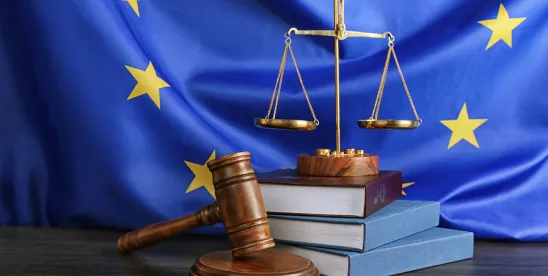On 6 October 2021, the Court of Justice of the European Union (CJEU or the Court) issued a judgment in case C-882/19 following a request for a preliminary ruling by the Court of Appeal of Barcelona (the Referring Court).
The CJEU´s ruling could prove to have a real practical impact for victims of competition law breaches since it may open the door to suing a domestic subsidiary of a cartel member. The Court ruled that the victim of an anticompetitive practice had to be able to claim compensation from the subsidiary established in its member state for the damage caused by the conduct of the parent company (which had been sanctioned by the Commission), provided that:
-
The subsidiary and the parent company together characterize a single economic unit; and
-
There was a concrete link between the economic activity of that subsidiary and the subject matter of the competition law infringement for which the parent company has been held liable.
The EU Commission had imposed a record fine of €2.93 billion on the leading European truck manufacturers for a 14-years’ duration cartel involving agreements on the sale prices of trucks (decision adopted on 19 July 2016). One of the cartel members was the parent company of the defendant in the case at hand.
The claimant, a Spanish truck company asked the Spanish courts to order the defendant (Spanish subsidiary that had not been mentioned in the decision of the EU Commission) to pay the sum of €22,204.35 in damages. The first instance court dismissed the case, and the Spanish truck company appealed to the referring court, which stayed the proceedings and referred the four following questions to the CJEU, in essence:
-
Whether the theory of economic unit allows the parent company’s liability to be extended to the subsidiary, and hence “top-down” liability, and if so, under what terms and conditions, (question 1 to 3); and
-
In the affirmative, whether the Spanish competition rules, which do not provide for such “top-down” liability, were consistent with European law (question 4).
On the first three questions, the CJEU ruled that “the victim of an anticompetitive practice by an undertaking may bring an action for damages, without distinction, either against a parent company who has been punished by the Commission for that practice in a decision or against a subsidiary of that company which is not referred to in that decision, where those companies together constitute a single economic unit” (pt.31).
To demonstrate such “economic unit," the plaintiff will have to demonstrate—whether by relying on a decision adopted by the Commission under Article 101 of the Treaty on the Functioning of the European Union (TFEU) or by any other means (“in particular where the Commission has remained silent on the point in that decision or has not yet been called upon to adopt a decision”)—:
-
Economic, organizational, and legal links that unite the two legal entities; and
-
A specific link between the economic activity of the subsidiary and the one relating to the infringement for which the parent company was held responsible. (pt. 51)
Here, the CJEU required the victim to establish that the same products subject of the anticompetitive practice were marketed by both the parent and subsidiary companies (pt.52).
CJEU pointed out that:
-
The subsidiary had to be able to defend its rights by being given “all the means necessary for the effective exercise of its rights of the defence, in particular in order to be able to dispute that it belongs to the same undertakings as its parent company” (p.53).
-
However, when dispute was relying on the establishment by the Commission of an infringement of Article 101 TFEU, the subsidiary could not contest the existence of the infringement before national courts (pt.55).
On the fourth question, the CJEU answered by stating that:
-
Article 101(1) TFEU should be interpreted as precluding national legislation which provides for the possibility of imputing liability for the conduct of one company to another only where the second company controlled the first company; and
-
If the national court did not consider itself able to adopt an interpretation of Article 71(2) of the Law on the Protection of Competition which is consistent with the interpretation of Article 101(1) TFEU, it had to disregard that national provision and apply Article 101(1) TFEU directly to the main proceedings.
The CJEU has thus reaffirmed its broad understanding of “economic unit”—this time not only for an extension of responsibility and liability from subsidiary to parent, but also the other way around, a concept rather foreign to quite a few member states, which look at individual company´s fault and only extend liability to other group companies on the basis of control considerations.
It is also worth noting that the General Data Protection Regulation (GDPR) also refers to Article 101 TFEU for its definition of responsibility for fines within a group of companies: the data protection authorities, in order to set administrative fines, rely on the provisions of Article 83(5) GDPR setting the maximum possible amounts and Recital 150 GDPR provides that “Where administrative fines are imposed on an undertaking, an undertaking should be understood to be an undertaking in accordance with Articles 101 and 102 TFEU” (implying that the competition law and data protection practices share the same broad interpretation of the notion of “undertakings;" i.e., economic units.)
Consequently, this decision may also generate ripple effects on data protection. This convergence mimics the current trend affecting big tech companies currently facing concurrent compliance requirements and enforcement on the ground of competition law and data protection as well as consumer protection.






 />i
/>i


